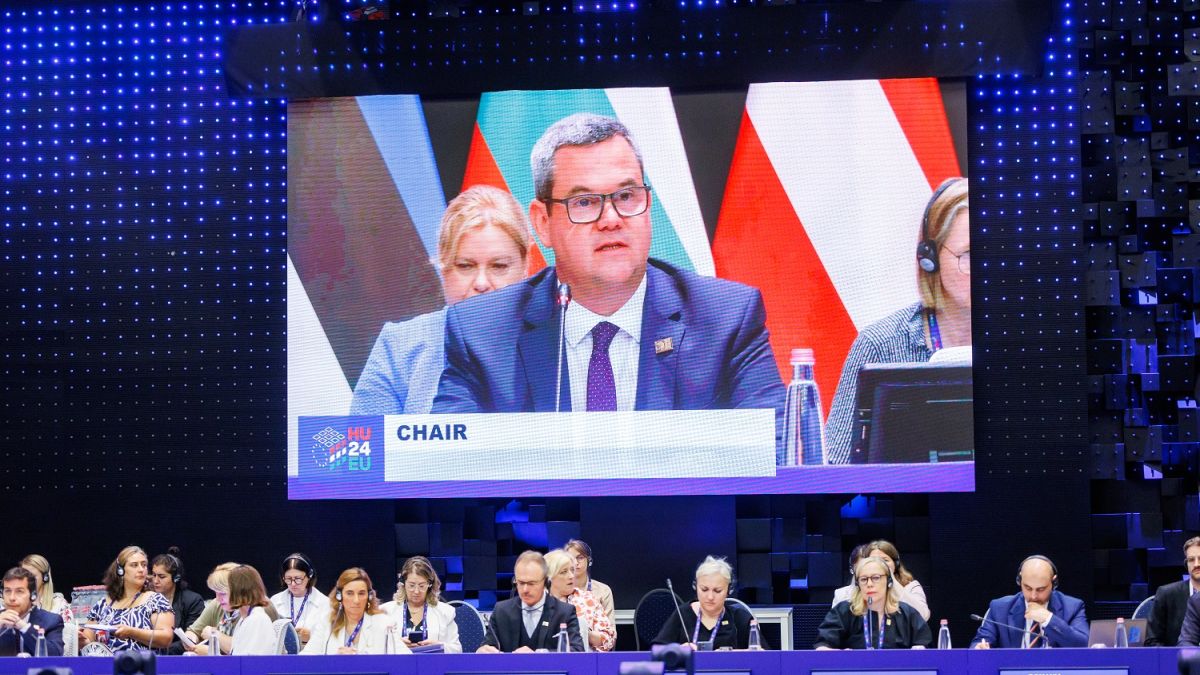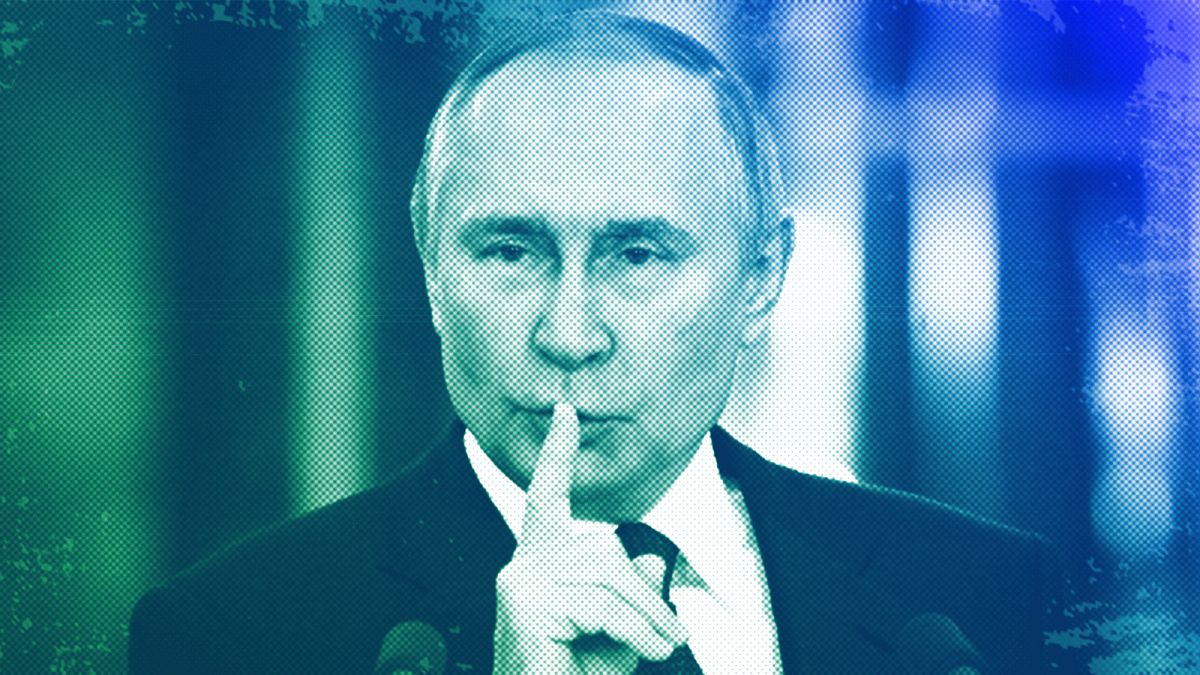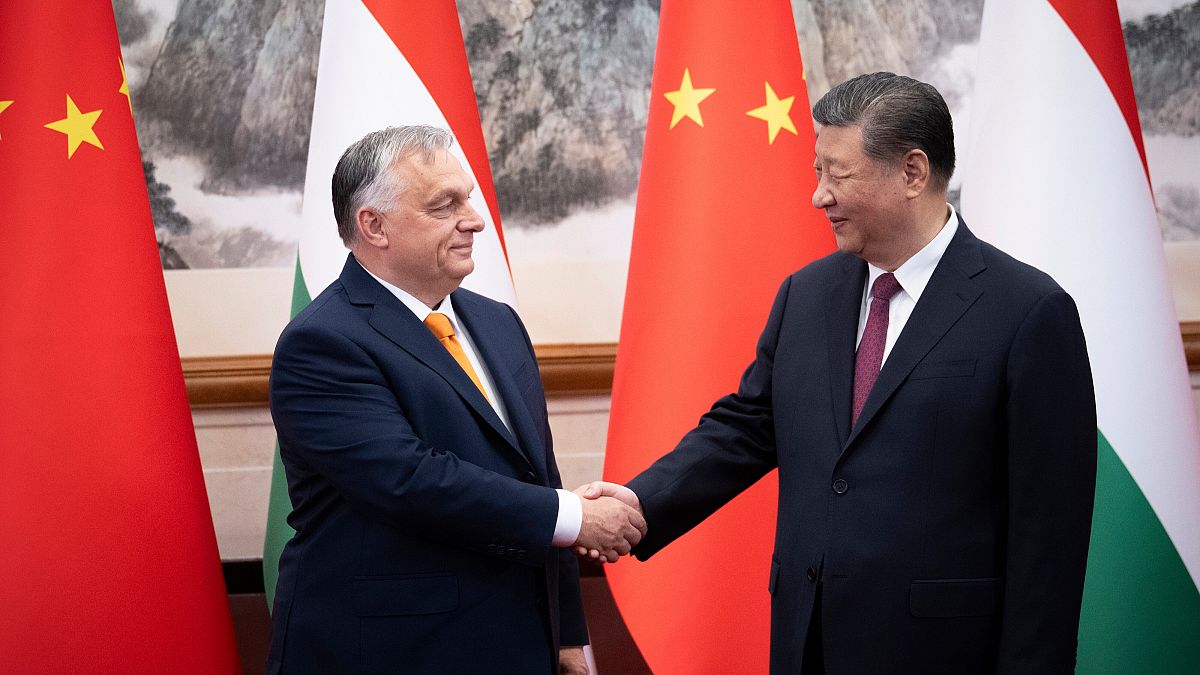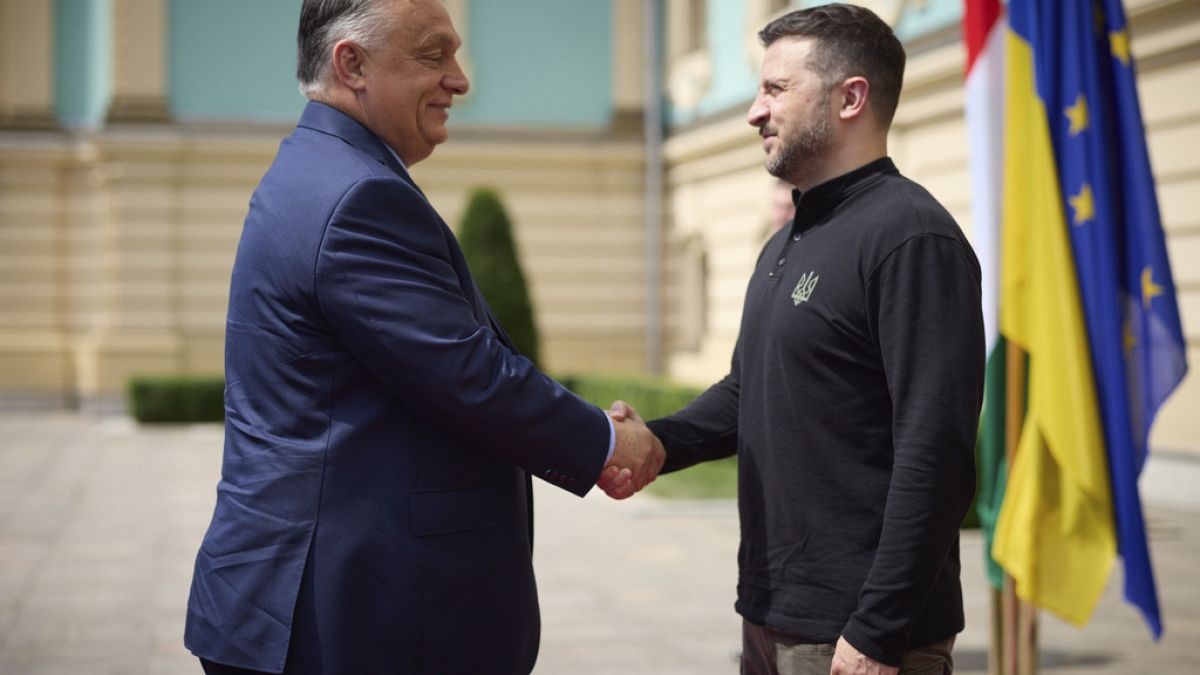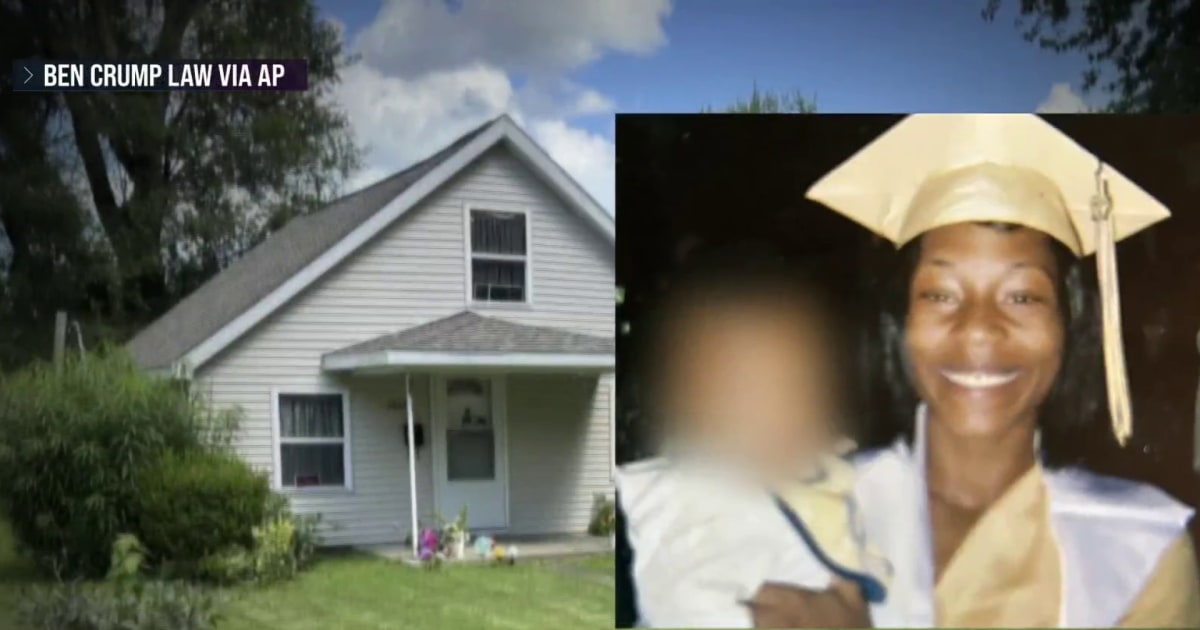World
Major harnessing of trolls shows threat to Hungarian democracy is real
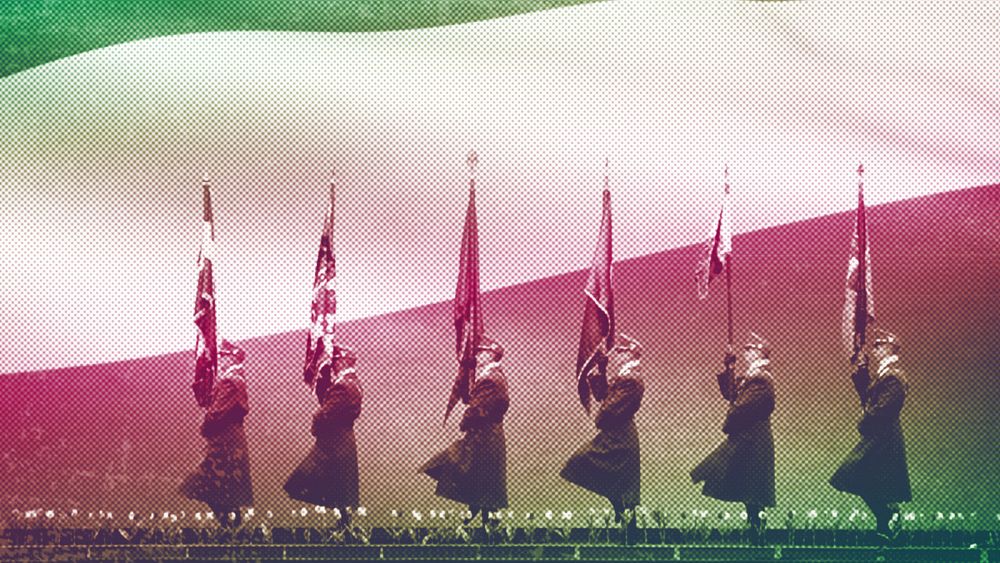
The opinions expressed in this article are those of the author and do not represent in any way the editorial position of Euronews.
Hundreds of coordinated fake profiles are engaged in pro-government influence operations on Facebook ahead of municipal and European Parliament elections in Hungary in 2024, Péter Krekó, Csaba Molnár and Ráchel Surányi write.
Next year, Hungarians will head to the polls to elect local officials and representatives to the European Parliament on the same day.
These elections will likely come against a backdrop of continuing high division between the European Commission and Hungary, over the latter’s persistent disregard for EU values, and the pro-Kremlin and pro-Beijing manoeuvring of Prime Minister Viktor Orbán.
Orbán is likely to enter 2024 in a strong position. In April 2022, he cemented his power by securing a landslide victory over a united political opposition.
His ruling Fidesz party, ahead of the European Parliament elections, has set its sights on chipping away at the Hungarian opposition’s gains from the last municipal elections, in which it won control over the capital of Budapest and several other major cities.
The gamed decision to hold the two elections on the same day, and to frame much of the debate around so-called “foreign interference” from Brussels and Washington makes life difficult for Budapest’s mayor, Gergely Karácsony, and other leading opposition candidates.
They will also contend with the most unbalanced media landscape in the EU, which not only makes it difficult for them to reach the voters but is so loaded in favour of Fidesz’ messaging that smear campaigns against opposition politicians are now commonplace.
A spike in Kremlin-style troll activity
Since regaining office in 2010, exerting greater and greater control over the Hungarian media space has been a key ambition of Orbán and his Fidesz party.
Over the past thirteen years, they have built up unprecedented control over the media, to the point that Hungary is now an informational autocracy.
With this traditional media space largely captured, the Hungarian government is now turning its attention to social media, especially Facebook, as part of its efforts to control public messaging.
New research from our Budapest-based think tank Political Capital has found a growing, Russian playbook-like proliferation of troll activity on Facebook, which, to date, has infiltrated over 450 public groups nationwide — but with a particular, and seemingly coordinated, emphasis on Budapest.
The city’s mayor Karácsony and other opposition figures are the principal targets of troll and misinformation activity within these groups — which often takes the form of sharing pro-government news articles that baselessly smear Karácsony’s administration and amplify Fidesz counter-messaging.
Given the expanding use of “fake profiles”, and their scale in activity, it is not unreasonable to argue that we are approaching a point where they would threaten the integrity of the 2024 elections.
By tracking and monitoring the characteristics of these users, Political Capital has been able to determine that almost all of the profiles in question are fake.
Obvious red flags aplenty
For one, this is evidenced by their profile and cover images, which herald almost invariably from the pages of existing foreign individuals, mainly from the Russian social media platform VKontakte and, in some cases, other sites, such as Russian, Bulgarian, and Ukrainian dating websites.
While some of the profiles bear Hungarian names, there is often a clumsiness to the profile creation, with many of the Facebook URLs containing other names, which may reveal the account’s true origin.
Furthermore, in an obvious red flag to their authenticity, they do not post anything on their page except for completely impersonal and re-shared content with mixed messages (such as commercial, animal-related, etc.).
The activity of these profiles is also heavily targeted. On Facebook, there is often an explicit focus on amplifying government narratives in community groups and spreading disinformation and defamatory content discrediting opposition parties and politicians, such as Karácsony and others.
This almost mirror-like behaviour across profiles suggests some central coordination. It is also revealing that, after their activation or “rebranding” in many cases, they join Facebook groups at a scale, including non-political local community groups and groups with public affairs content with pro-government, anti-government and even pro-opposition leaning.
They are often found clustered in the same national political groups, which indicates some level of strategic deployment.
Only Meta can judge these
In some cases, this network even deploys safety mechanisms. Political Capital’s research found that large numbers of these profiles publish with various intensities in the groups they have joined, while some serve as “sleeper profiles” that have not yet been “activated” as publishers.
Upon publication of this data haul in September, researchers found that the URLs of some profiles changed overnight to match their assumed identity on Facebook — thereby, unintentionally, confirming that they are indeed fake profiles, which are being centrally coordinated.
Only Facebook’s owner, Meta, can reveal the origin and location of these profiles en masse and act to have them removed.
We have called for this and pointed out that, if they are left unchecked, they could develop roots in community groups, and scale their reach to other Facebook users — and, importantly, potential voters.
This harnessing of trolls and manipulation of social media is a sad indication of the direction of travel for Hungary and its democracy under Orbán.
This is just a test phase
Over the past decade, the prime minister and his party have established an amount of control over the media landscape in Hungary that seriously threatens its freedom.
In 2021, Reporters Without Borders charged Orbán with being a “press freedom predator”, and, before the 2022 elections, investigative reporters found that a Hungarian fund financed pro-government social media personalities to the tune of several million euros to spread the government’s messages.
It was subsequently revealed by a global coalition of journalists that the Hungarian government used Pegasus spyware to surveil journalists, media owners and politicians.
It is clear: as the municipal and European Parliament elections draw closer, the amount of fake news and smear campaigns pushed through traditional mediums by pro-government sources will intensify.
But so will the activity of fake profiles on Facebook and other social media platforms.
What we are witnessing in Hungary is a test phase and scaling of something that belongs to a Kremlin-inspired playbook. The threat to the 2024 elections and the very future of the public space in our country is real.
Péter Krekó serves as Executive Director, Csaba Molnár is Head of Research and Data Analyst, and Ráchel Surányi is Analyst at the Political Capital Institute in Budapest.
At Euronews, we believe all views matter. Contact us at view@euronews.com to send pitches or submissions and be part of the conversation.

World
Celine Dion Makes Triumphant Comeback at Paris Olympics Opening Ceremony — Watch Full Performance

ad
World
95 Libyan nationals arrested in South Africa at suspected secret military training camp
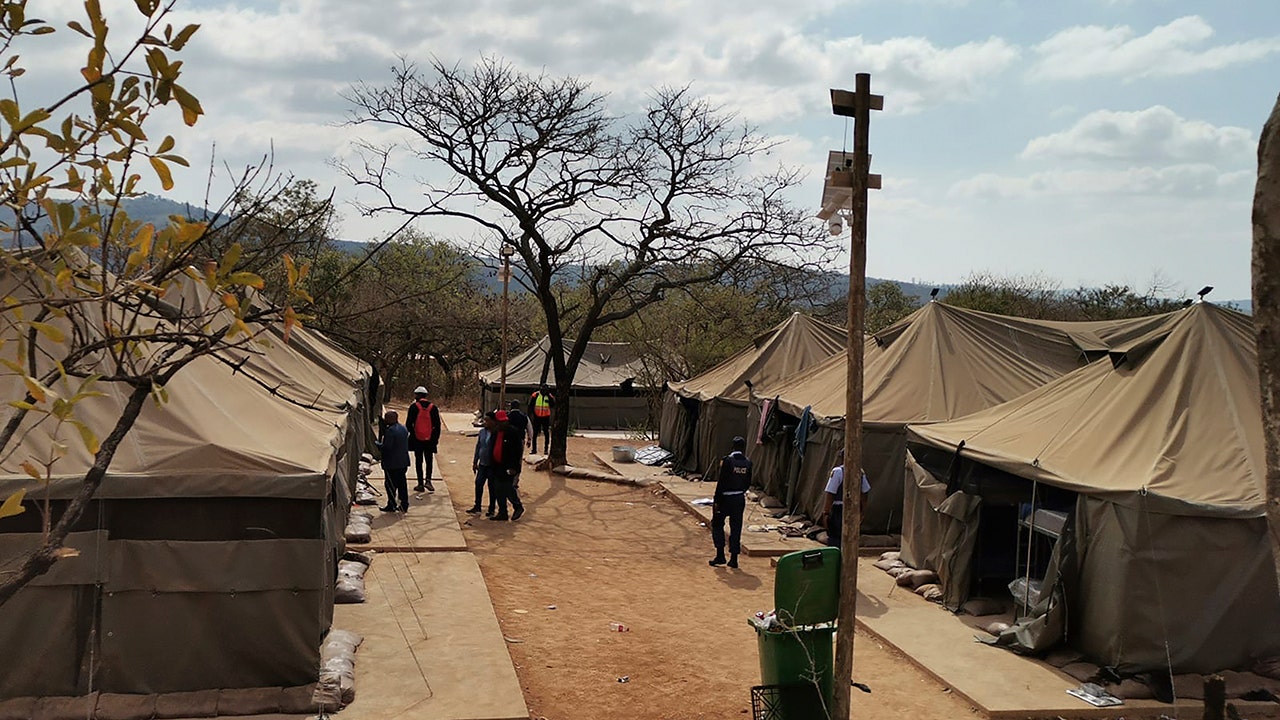
South African police arrested 95 Libyan nationals in a raid on a suspected secret military training camp on Friday and authorities said they were investigating whether there were more illegal bases in other parts of the country.
The camp was discovered at a farm in White River in the Mpumalanga province, about 360 kilometers (220 miles) northeast of Johannesburg, police said.
ELEPHANTS KILL TOURIST IN SOUTH AFRICA AFTER HE TRIED TO GET CLOSE TO TAKE PICTURES
National police spokesperson Athlenda Mathe said in a post on the social media site X that the Libyans stated they had entered the country on study visas to train as security guards, but police investigations suggest they have received military training.
The Newzroom Afrika TV news channel broadcast pictures of the site of the arrests, showing a military-style camp with large green and khaki tents set up in a row. Dozens of men were seen lining up as they were arrested. They were wearing civilian clothing.
Local government official Jackie Macie said investigations were ongoing and the owner of the farm would be questioned. He said authorities received information that there were similar secret camps near two other towns in Mpumalanga province.
A camp where 95 Libyan nationals were arrested on suspicion of running an illegal military camp are seen lining up after their arrest on Friday, July 26, 2024 in White River, South Africa. Police say that 95 Libyan nationals were arrested on suspicion of receiving training at a secret military camp in the north of the country. (AP Photo/Bulelwa Maphanga)
The province borders neighboring countries Mozambique and Swaziland and is an area of concern for South African authorities with regards to illegal immigration.
Police and authorities have not said whether the camps are suspected of being connected to a particular group or conflict.
Macie said investigations would establish if there was a network of camps in South Africa and show “why they are here doing military training in our country.”
Police said the men may be linked to crimes reported in communities close to the farm in recent months.
“We have serious cases which have been opened with the police, including cases of rape and armed robberies, which complainants claim were committed by unknown foreigners who seem to be of Asian descent,” said police spokesman Donald Mdhluli.
“We take what we have found here today very seriously because we don’t know who was training them, what were they being trained for and why that training is happening here in South Africa. It may be a threat not only to South Africa but also to the entire southern Africa region.”
Police said the operation to arrest the Libyans and close down the camp began two days ago. Macie said the Libyan nationals had been in the country since at least April.
“The 95 individuals taken into custody are all Libyan nationals and are currently being questioned by the relevant authorities,” Mpumalanga acting provincial police commissioner Maj. Gen. Zeph Mkhwanazi said in a statement.
Mdhluli, the police spokesman, said the country’s security regulator had confirmed that the kind of training that appears to have been taking place at the camp was well beyond the scope of training for security guards.
“The kind of equipment we found here shows that there was intense military training taking place here. This was basically a military base.”
World
Passengers face long, uncertain wait at stations amid rail disruption

A deliberate fire in a signal box about 60 km south of Lille caused the disruption on the northern high-speed line, with traffic halted around 5 a.m. local time on Friday.
Travel was severely disrupted in Lille on Friday, one of the stations affected by the sabotage that hit major French rail lines ahead of the Paris Olympics opening ceremony.
Many passengers waited with hope that soon turned to resignation.
“We’ve been waiting since 10:38 a.m. for the 11:38 a.m. train, and now we’re just waiting for it to arrive at 2:08 p.m.,” said Delphine, one of the stranded passengers.
“It’s still quite a delay, and we’ll be even later since we’re on a secondary route. I work in Avignon at 9 p.m., so it’s going to be very, very tight. We have a concert tonight — will it even happen? This is all very confusing, and we don’t understand what’s going on.”
For one traveller, this was a rough start to the holidays. “The worst case would be if the train is cancelled entirely and we have to buy new tickets for next week. It would shorten our already brief vacation. That would be a huge problem,” said Hippolyte.
When asked if he had been informed of the delays, Hippolyte said he received the notification just before departure.
“At around 10 a.m. this morning, we were told we were an hour late and would be leaving at 1 p.m.”
“It just keeps getting later as the day goes on. Every time we approach the new departure time, it gets pushed back another hour and a half, or half an hour each time.”
A deliberate fire in a signal box about 60 km south of Lille caused the disruption on the northern high-speed line. Traffic was halted around 5 a.m. on Friday.
The recent acts of sabotage on the rail network highlight that the Olympic Games are turning France into a prime target.
The attack disrupted the transport system on the opening day of the Games, causing delays of up to two hours or even cancellations that affected hundreds of thousands of passengers nationwide.
Authorities in Paris have said they are deploying substantial human resources to counter any threats and to ensure the safety of the events.
-

 World1 week ago
World1 week agoOne dead after car crashes into restaurant in Paris
-

 Midwest1 week ago
Midwest1 week agoMichigan rep posts video response to Stephen Colbert's joke about his RNC speech: 'Touché'
-

 News1 week ago
News1 week agoVideo: Young Republicans on Why Their Party Isn’t Reaching Gen Z (And What They Can Do About It)
-

 Movie Reviews1 week ago
Movie Reviews1 week agoMovie Review: A new generation drives into the storm in rousing ‘Twisters’
-

 News1 week ago
News1 week agoIn Milwaukee, Black Voters Struggle to Find a Home With Either Party
-

 Politics1 week ago
Politics1 week agoFox News Politics: The Call is Coming from Inside the House
-

 News1 week ago
News1 week agoVideo: J.D. Vance Accepts Vice-Presidential Nomination
-

 World1 week ago
World1 week agoTrump to take RNC stage for first speech since assassination attempt
